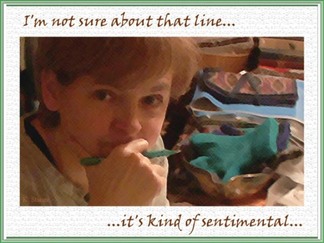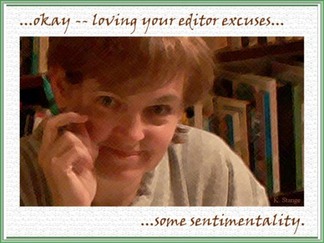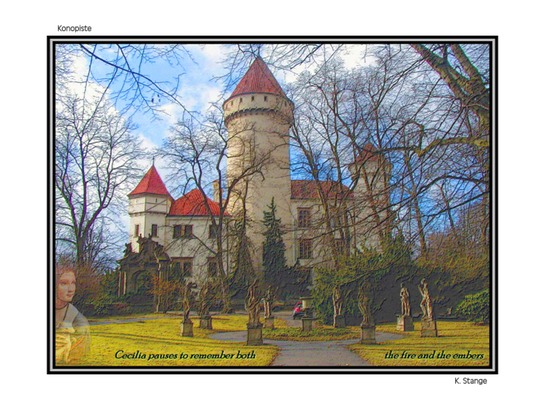Distance Is Relative
Distance Is Relative
“Paradoxically the distances to home and from home are not equal.” –Hippokrites
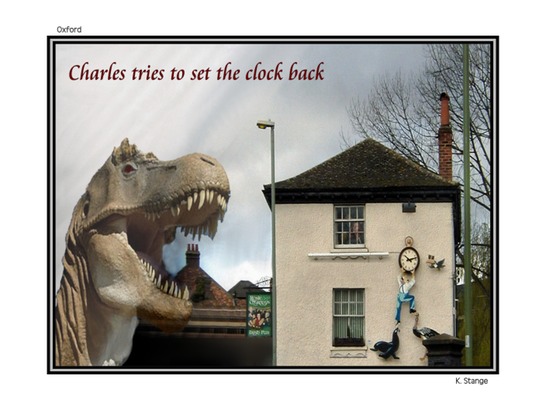
http://kenstange.com/gallery/main.php?g2_itemId=1786&g2_imageViewsIndex=1
Your Man Friday's Ideas: The Demonization of Drugs
Your Man Friday's Ideas: The Demonization of Drugs
Sex, drugs, and rock & roll all have an undeserved bad rep. Some people give up sex, and some people hate rock & roll, and they’re apparently doing okay. But very few people would want to give up drugs, and if they did...
Cyber-education
Cyber-education
Last week I did a presentation at the “International Conference on Teaching Psychology” in Vancouver about my experience developing and teaching my course on “The Psychology of Art” for Distance Education. Here is the PowerPoint that accompanied my talk: “Teaching Psychology Online: A Case Study”.
PowerPoint File:
http://www.kenstange.com/science/Teaching
Psychology Online.ppt
PDF Version:
http://www.kenstange.com/science/Teaching
Psychology Online.pdf
Blame The Camels
Blame The Camels
Good metaphors are about remarking connections between what superficially appear to be unrelated things. Once when I was doing a stint in a grade school class as part of the Writers In The Schools program, I gave the kids this exercise in finding metaphors (similes, actually). I asked for some random child to name anything, and then asked another kid to name something very different. Then I asked for anyone to put up their hand when they could say how the two objects were similar. Someone suggested a motorcycle, and the second child said a camel. I was disappointed in these selections, because the easy answer is obvious and hardly creative. Nevertheless I asked, “How is a motorcycle like a camel?” One boy’s hand shot instantly, so I pointed to him. “They both have gas!” was his answer. Now that’s a creative answer, although how he knew that camels are flatulent, I have no idea! But, incidentally, it is true.
Distract Me. I like it.
Distract Me. I like it.
Recently there has been a lot of quasi-scientific chatter about how writers have a kind of Attention Deficit Disorder and so can’t easily filter out distracting, ‘irrelevant’ stimuli. Of course it is this distracting clutter that is the building material for the construction of metaphor. One man’s garbage is another man’s treasure. (Or people wouldn’t remarry.)
The Cretin At The Poetry Reading
The Cretin At The Poetry Reading
Here is a new “Offering”.
http://www.kenstange.com/offering/
Grammar Wars
Grammar Wars
For years I’ve been arguing with my wife about grammar, and now my son-in-law has waded into the fray, although he probably doesn’t realize how dangerous that is. I should’ve warned him how serious this war of words can get. For example, how many couples come to blows over the placement of a comma? (Okay, not quite.) But why did my lawyer have to remind me that disagreement over the use of the colon (the punctuation kind) is not really technically spousal abuse?
It doesn’t take much to trigger a skirmish around here. Often Ursula fires the first shot by ‘correcting’ my use of ‘fewer’ instead of ‘lesser’ (or vice versa) while I’m in the middle of eloquently explaining one of my many profound insights!
The problem is she taught English composition at Nipissing University and is too well versed in—and obsessed with—the so-called ‘rules’ of usage. So I, as a writer, am often driven to quoting Rhett Butler last words to Scarlett O’Hara in Gone With The Wind: "Frankly, my dear, I don't give a damn!"
I appreciate and greatly value effective communication, but I side
with Stephen Fry when it comes grammar pedants.
http://www.youtube.com/watch?v=Ovi7uQbtKas
Editors! Who Needs Them?
Editors! Who Needs Them?
Answer: writers! While I firmly believe writers must have the last word (so to speak) about what they write, they are too close to what they write to see it clearly and critically. I am a terrible proof-reader of my own work, partially because I read too fast and partially because my head knows what I thought I was saying, and what is actually on the page is just scanned with the unconscious assumption it matches this mental manuscript. But even more problematic than missing typos is thinking one is being clear when one is writing in a clumsy, confusing way. A good editor does more than just correct typos, spelling errors, and misleading punctuation. A good editor points out infelicities of usage and redundancies and all the other writing sins we overlook when reviewing our own work. (And resent having pointed out.)
Such good editors are hard to find, and even the best, most insightful, and tactful ones still tend to be viewed with hostility, for what writer is comfortable with being told some bit of assumed to be immortal prose or poetry is really shitty, careless writing? So the relationship inevitably is to some extent adversarial. A writer may greatly appreciate his or her editor, but conflict is inevitable.
Yes, good editors are hard to find, especially ones that are ‘on call’ 24/7 and have to put up with your fits of pique. I suggest marrying one. It worked for me.
Your Man Friday’s Ideas: A Literary Train Of Thought
Your Man Friday’s Ideas: A Literary Train Of Thought
There is something special about trains, something inherently literary. For Canadians, Pierre Burton’s book, The Last Spike, about how building the TransCanada rail connected all the diverse regions of our vast country is justifiably a classic. For most Europeans, the same is true of the intricate rail web that so efficiently connects even more diverse places, and which many travellers consider the only really civilized way to travel the Continent. And Paul Theroux’s wonderful book, The Great Railway Bazaar: By Train Through Asia, well describes how the train connects even more distant and diverse locations. So it is not surprising that the idea of utilizing train travel as a literary metaphor is so common—and poets love trains.
Link to Man Friday’s links here: http://kenstange.com/yourmanfriday/?p=1385/
Fellow Train Travellers' Tales
Fellow Train Travellers' Tales
Have done a lot travelling, and right now am really just glad to be home and working in the comfort of my study. But travelling is a boon to a writer, because the writers’ paradox is that while they are introverts, they need to meet people to gather material and inspiration.
Train travel is especially effective, for you can’t help but meet people. On Amtrak diners, the tables seat four, so they pair up couples. During our various train trips, we have inevitably been paired up with interesting people, and you get to know each other very quickly, for dining together has always been an inherently social activity. Most first dates are for dinner. The family that eats together stays together. (Well, so they say. Admittedly sometimes these dinner tables are battlegrounds, but again you still really get to know each other.)
I have a story forming in my head based on a recent dining car companion’s tale of dealing with airport security. He was an ex-army officer and made the mistake of pointing out the absurdity of everyone dumping his or her allegedly potential explosive liquids into a common container right at airport security! He used the B-word in explaining the danger of this and was promptly taken aside for interrogation. His description of the interrogation could have come from Heller’s Catch-22. And he eventually used the F-word to tell them what to do—and then refused to fly. My kind of guy, albeit with more cojones than I have!
The Ultimate Train Writer Can Train A Writer
The Ultimate Train Writer Can Train A Writer
Paul Theroux should be required reading for any wannabe travel writer. His 1975 book, The Great Railway Bazaar, is justifiably a classic of the genre. It is based on an extended trip where he travelled on many trains throughout Europe and Asia, completely disconnected from his family and friends at home—but totally and immediately connected to his fellow travellers. In this brief interview he explains his method for extracting the material for a great book by really just attending to what you see and especially to those whom you meet.
What Makes Travel Worthwhile Is Its Adversity
What Makes Travel Worthwhile Is Its Adversity
“Travel without misadventure is no adventure at all and hardly counts as travel.” –Hippokrites
The Holiday Inn used to have an ad that promised “No surprises!” Well then why travel? We travel to get away from the ordinary. It’s about surprises. If you want to bed down in a place identical to the motel in your hometown and dine on the same food you can get at your local restaurant, do so—but then why spend your hard-earned money to travel?
When we recount our travels, we inevitably talk about the surprises, many of them about the travails of travels. It might be the wax paper that passes for toilet paper in England, the restrooms for which you had to drink heavily beforehand (or had a really pressing need) before you dared to enter them, the trains in Eastern Europe where announcements of stations were made though a crackling PA system in a language you didn’t understand, the despair of finding yourself without accommodation for the night, the gypsy beggar kids who licked their hands and then rubbed them on you to curse you for your lack of charity, the many eccentrics that try to befriend you and spill their tales of woe, the petty thief who picked your pocket (or broke into your hotel room or rented car) and made off with your passport and money, or any of many other misadventures the traveller really should not consider a surprise. C’mon, isn’t that what we often talk about when we recount our trips? And isn’t that the sort of material out of which writers craft their travel books? Who would read a book that about canoeing from Canada to the Amazon basin or biking around the world that recounted how uneventful and easy it was?
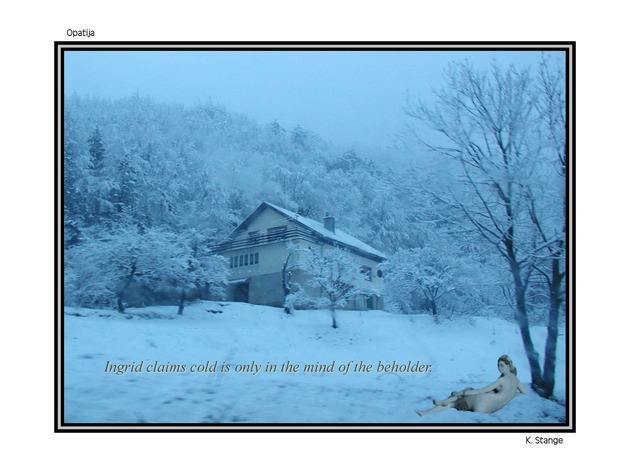
http://kenstange.com/gallery/main.php?g2_itemId=1780&g2_imageViewsIndex=1
Hickey’s Dead!
Hickey’s Dead!
New book out by a friend of mine—and fellow northerner!
A Great Poetry Smorgasbord
A Great Poetry Smorgasbord
Here is a great almost daily blog of poetry reviews by another writer friend of mine. He includes several complete poems from each book he reviews, so his blog is effectively a poetry mag containing the crème de crème of new poetry books. Hats off to Michael Dennis for this pro bono work of keeping up with the poetic delights being published by small presses with limited distribution—and sharing them to the benefit of both us and the writers!
Writers Have Been Constantly Dogged By An Addiction To Puns
Writers Have Been Constantly Dogged By An Addiction To Puns
Are puns the lowest form of humour or the highest? I side with the Bard, who obviously loved them.
Your Man Friday’s Ideas: The Good Old Days
Your Man Friday’s Ideas: The Good Old Days
One of the many pleasures of the Internet is how it can lure you down new and interesting paths. A bit of curiosity about a link in some sidebar can send you back through time to, for example, the Middle Ages. How many of us have any idea what life was like back then? Now we can so easily get a glimpse into the past. And not surprisingly they had the same needs as we do now: food, drink, and entertainment.
Time Travel
Time Travel
A lot of writing involves time travel—on that unreliable vehicle called memory. The older you get, the greater the distance being traversed and the less likely a successful arrival at your destination. Trying to write about my childhood on the South Side of Chicago is making me increasingly aware of this. But I reassure myself with the knowledge that all our memories are fictions. Only the rough plot outlines might be based on the original events. The stories themselves have been so heavily edited by the action of recalling them that they surely bear only the most superficial resemblance to what really occurred.
My wife says every time I tell someone a story about what happened to me, it gets “better”. I’m not at all sure she means that as a compliment, but I’m going to take it as one—and my less than perfect memory as something to be valued. As Nietzsche observed, “Many a man fails as an original thinker simply because his memory it too good.”
What Time Doesn’t Change
What Time Doesn’t Change
Our memories our youth may be change with time, but the events that forged them remain the permanent underlying structure of our current selves. This excerpt is from the introduction to my current work-in-progress about my youth.
“You can fix up your house, put on new siding, add a sunroom, knock down interior walls to make one big room out of two, even install a security system to protect against intruders, but the foundation and the basic framework remain the same. Old friends visiting from afar will say they don’t even recognize the old homestead, but you live there and you know it is, at heart, the same place. Go to a high school reunion. The kid everybody called Fatso may now be slim and tanned and a senior executive in an Armani suit—ah, but watch his face closely as he approaches the snack table.”
(From Freezing Fire, a work-in-progress)
Remembering Past Passions
Remembering Past Passions
“Many memories are forged in the fire of passion, but the recall of them only has the taste of ashes” —Hippokrites
http://kenstange.com/gallery/main.php?g2_itemId=1774&g2_imageViewsIndex=1
Fanning The Embers
Fanning The Embers
“It is not always true that ‘where there’s smoke, there’s fire’, but where there’s smoke there are embers—and where there are embers, there is at least the potential for fire.” —Hippokrites
http://kenstange.com/gallery/main.php?g2_itemId=905&g2_imageViewsIndex=1
Adolescent Passion Play
Adolescent Passion Play
This is a poem from my book, The
Sad Science of Love.
http://twoculturespress.com/sad_science_of_love.php
~~~~~~~~~~~~~~~~~~~~~~~~~~~~~~~~~~~~~~~~~~~~~~~~~~~~~~~~~~~~~
Adolescent Passion Play
“Our notion of symmetry is derived from the human face. Hence, we demand
symmetry horizontally and in breadth only, not vertically nor in depth.”
—Blaise Pascal, Aphorisms
I used to play softball on the diamond
intersection of Paulina and 65th Street
with storm sewers as bases: Paulina
Street was right field, 65th was left,
and your corner yard, our centre field.
.
Even then I longed for symmetry.
Even then I longed for you.
~~~~~~~~~~~~~~~~~~~~~~~~~~~~~~~~~~~~~~~~~~~~~~~~~~~~~~~~~~~~~
Passion At A Passion Play
Passion At A Passion Play
Here another bit about early passion and, incidentally, how I was ‘shaped’ into an atheist. It’s from Freezing Fire, a work-in-progress.
Your Man Friday’s Ideas: When To Wrestle With Pigs
Your Man Friday’s Ideas: When To Wrestle With Pigs
George Bernard Shaw once commented on the futility of arguing with true believers of any sort: “I learned long ago, never to wrestle with a pig. You get dirty, and besides, the pig likes it.” Still, argument can sometimes be useful, although that is relatively unusual. And, of course, there are many different kinds of argument. A mathematical proof is an argument, but so is a spat about who is contributing their fair share to a relationship. In most arguments, it is naive to expect either combatant to change his or her opinion, and so arguing is pointless. (Unless one gets pleasure in exercising one’s wit or finds it enlightening to get a glimpse into another person’s mind.) However, there is value in public arguments such as debates, presentations to a jury, or conclusions presented to a knowledgeable audience (as in the case of scientific or scholarly publication). Here, the observers can change their initial opinions, which often matter.
Links here: http://kenstange.com/yourmanfriday/?p=1406
Polemic Literature
Polemic Literature
“Strong opinions are more common in weak minds.” –Hippokrites
Hippokrites is right. This is true, but only because there are more weak minds than strong ones. But among the strong ones are some great writers who forged the polemic into a significant and very entertaining literary genre. There is something you have to love about caustic wit in defense of an opinion worth taking seriously—even if you don’t eventually come to agree with it. We have recently lost a great polemicist and contrarian with the passing of Christopher Hitchens. I envy him his style and his thick skin—not to mention his erudition. I can’t imagine his tombstone saying “Rest In Peace” for he could never be at peace with the stupidity and ignorance he lambasted all his life.
Here just two sample collections of quotations from this great troublemaker and debunker of pretension.
http://www.patheos.com/blogs/unreasonablefaith/2011/12/the-20-best-christopher-hitchens-quotes/
http://www.thestar.com/news/world/2011/12/16/13_unforgettable_christopher_hitchens_quotes.html
Never The Twain Shall I Meet
Never The Twain Shall I Meet
Once I was casually chatting with a fellow at a bar in Chicago’s Old Town District, and he told me a story about working as a desk clerk at The Mark Twain Hotel, a less than upscale establishment at Clark and Division. A middle-aged, well-dressed man came in with a young lady wearing a mini-skirt and too much makeup. This gentleman signed in as Mr. and Mrs. Samuel Clemens. My acquaintance was amused but claimed he didn’t crack a smile. I think Mark Twain would also have been amused, and I wish he too were sitting with my companion and me at that bar that night.
I often think about how interesting it would’ve been to spend an evening drinking with any of the dead writers I admire. But I’ll never get to meet Mark Twain. The best I can do is read other writers’ recollections of having had that opportunity. From what I’ve read, Mr. Clemens was actually a pretty sensitive guy, which contrasts dramatically with his oft-quoted contrarian and cynical remarks. The explanation may lie in this quotation from a speech he gave: “It usually takes more than three weeks to prepare a good impromptu speech.” The same is probably true of many writers’ witty quips. Nevertheless, I’m sure he would be a very entertaining drinking companion.
Here is a delightful list of Twain quotations. It is telling that he often makes as much fun of himself as he does of the rest of our species.
Ouch, That Hurts! Touché!
Ouch, That Hurts! Touché!
Thinking about why we so enjoy witty sarcasm and polemic. I’m sure much of the time it is because we happen to agree that the person or idea being satirized deserves mocking. But sometimes it is simply aesthetic pleasure—even if we sympathize with the target of the barb. You may even laugh when someone makes witty fun of your own foibles.
I can easily imagine that being the response of the unfortunate student who read my friend’s comment in the margin of her term paper on one of Shakespeare’s comedies. My colleague confessed to me, somewhat sheepishly, that he was unable to resist writing a less than formal, professorial remark on her paper. When this student, in writing about the amount of implied sex in the play, kept referring to “fornification”, he snapped and scribbled in the margin of her paper “The fucking word is fornication!”
Reviewer
Reviewer
There once was this nasty curmudgeon
Whose only joy in life was to bludgeon
Any book that he read
Till sure it was dead
Cuz of compassion he had not a smidgen.
Reviled Reviewers
Reviled Reviewers
An easy way to exercise what you consider your wit is to write scathing reviews—be they of films, books, or any other art form. What could be more fun than having an audience for your cleverness at some artist’s expense? And the meanest reviewers have the biggest audience, because the devil always has all the good lines.
What is safer than taking pot shots at someone who can’t fire back? Those artists that are even given a platform to defend their work are reluctant to mount it, for they are bound to sound defensive, and to respond to an unfair attack is to dignify it with a response. So it isn’t surprising most writers and other artists don’t have a good relationship with reviewers.
“Reviewers, with some rare exceptions, are a most stupid and malignant race.” ― Percy Bysshe Shelley
The Honest Book Reviewer Conundrum
The Honest Book Reviewer Conundrum
Who is more qualified to judge the craftsmanship of something than another craftsman? So who is more qualified to review a book of poetry than another poet? But the literary community is small and intimate; especially the poetic community, and writers have big and easily bruised egos.
What does one do if sent a book to review that one thinks is really bad, but the author is a friend and colleague? Is honesty always the best policy? White lies can be useful. If you’re a poet, and your daughter shows you her first attempts at writing poetry, no one can fault you for being a bit too generous with your praise, but then you’re not publicly recommending it to those who regularly read poetry.
Writers often review each other’s work, and it may not be a good tradition, despite the fact that they know the craft. Filmmakers don’t moonlight as movie reviewers. The respected reviewers are film aficionados. The serious moviegoer is quite qualified to be an objective reviewer. Film critics and filmmakers are two separate communities that have little contact with each other. This isn’t as true of book reviewers and writers. (This is especially true regarding poetry, where the readership is small and poets over-represented.)
It is no wonder that the writing community sometimes seems like a very disputatiously and dysfunctional family. Ah, but at least the public spats are very literate and entertaining. Here are 50 writers saying nasty things about other writers.
http://www.examiner.com/article/the-50-best-author-vs-author-put-downs-of-all-time
Your Man Friday’s Ideas: Letting Art Out Of The Ghetto
Your Man Friday’s Ideas: Letting Art Out Of The Ghetto
Visual art too often is only to be found sequestered in some ghetto: some public or private art gallery. No wonder it doesn’t seem an integral part of our daily existence. We have to seek it out, and few bother, for its pleasures have so infrequently been experienced as to lure us. Wider appreciation is only made possible by accessibility. Here are some examples of attempts to take art out of the ghetto and onto the main streets of our cities.
What Is The Value Of Art?
What Is The Value Of Art?
I often question the question often asked: What is it worth? What I question is the meaning of “worth” in that question.
Worth is usually quantified as currency or—to be more precise—the amount of currency someone would hand over to own it. Does that really make sense? Money is fundamentally worthless. It’s what is called a secondary reinforcement. Its only value is what it can give us that has real value to us. The whole thing seems somehow circular, tautological.
What is responsible for these pseudo-philosophical thoughts is a newspaper clipping I just came across where the journalist wrote that the contents of this literary mag I published were “priceless” and then gave the price of an issue. (Two bucks, incidentally, but this was a long time ago.) I couldn’t help but hear someone remark on a friend’s ridiculous behaviour: “Isn’t that just priceless!?”
I guess I would agree that some of the literary works in that mag were—are—priceless. If good writing’s value is its market price, then even the works of Shakespeare’s writing are both priceless—and worthless, for it now costs nothing to make it your own by reading it. The latest, trashy novel is ‘worth’ more—probably at least $9.95 at Coles.
So it seems that one hell of a lot of great art is worthless, unless you can own it and demand money to part with it or share it. It all seems ridiculous to me. But then you wouldn’t want me as your financial advisor.
